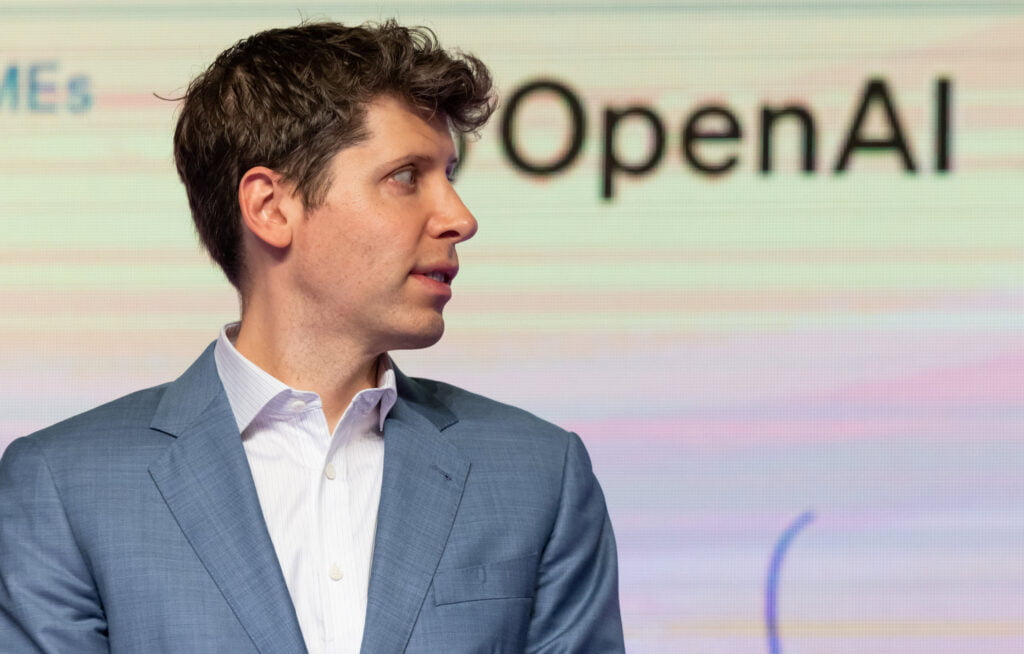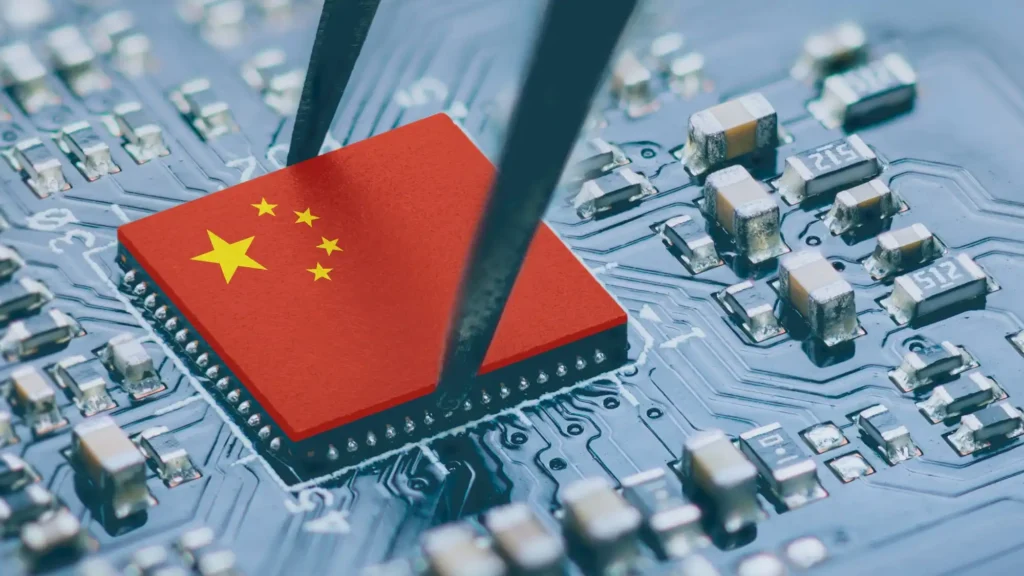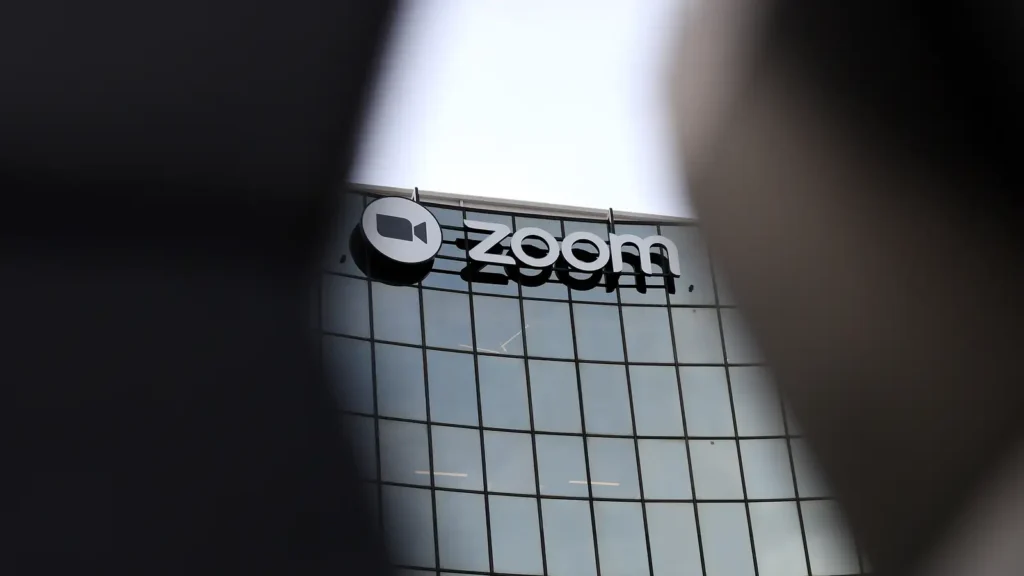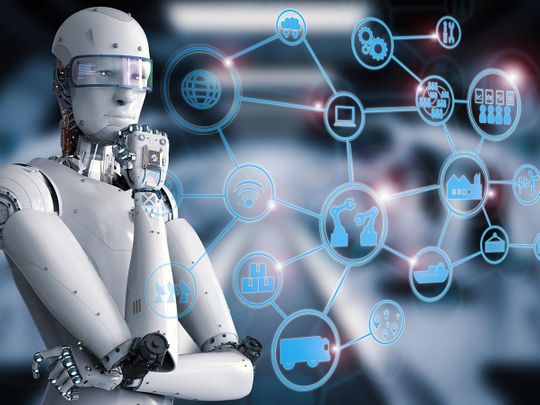In 2023, significant tech developments highlight the impact of generative AI and geopolitics on the industry. A rising concern emerges regarding the dominance of major tech corporations.
The top 2023 technology stories emphasize profound shifts in culture, geopolitics, and technology itself: It is evident that generative AI will have an impact on all elements of technology and society, while geopolitical tensions are fueling global cybersecurity threats. Meanwhile, widespread concern about big tech’s dominance is prompting regulators to crack down on monopolistic business practices and multibillion-dollar mergers.
Table of Contents
Dismissed, then reinstated! Sam Altman’s departure and comeback to OpenAI.

The resignation of Sam Altman as CEO of OpenAI, which ushered in the current era of generative AI with the debut of ChatGPT a year earlier, was the tech industry’s biggest surprise of the year. After the board issued an enigmatic statement on November 17 claiming that Altman had been sacked for not being “consistently candid,” Microsoft declared that it would recruit Altman and any other OpenAI employees who chose to follow him out the door, which turned out to be practically all of them. OpenAI relented and rehired Altman.
When the dust settled, the story became clear: the OpenAI board feared that Altman, under pressure from investors and the need to pay for massive quantities of computer power, was releasing products too quickly, compromising the company’s primary purpose of developing safe AI systems. Altman is now back in charge of OpenAI with an almost entirely new board, highlighting an age-old story: business interests and the desire to be on the cutting edge trump attempts to stifle technological growth.
Landmark Tech Antitrust Trial: Department of Justice vs. Google – The most significant legal battle in two decades.

The US Department of Justice (DOJ) began its antitrust trial against Google in September, charging the internet behemoth of illegally preserving a search monopoly through partnerships that make it the default search technology on a number of devices, particularly those manufactured by Apple. It’s the biggest antitrust case in technology since the DOJ sued Microsoft with illegally bundling Internet Explorer with Windows in the 1990s. This time, Microsoft CEO Satya Nadella was a key witness for the prosecution, warning that Google’s monopoly revenues could lock in publishers as AI-enabled search becomes more prevalent.
It’s just one of a number of ongoing cases — including the US Federal Trade Commission’s antitrust lawsuit on Amazon’s e-commerce business, which was launched in September, and a separate US antitrust case against Google, focusing on advertising, which will go to trial in 2024 — that may reshape the tech market as regulators show renewed vigor in pushing back against anticompetitive practices.
Tech Layoffs: Amazon reduces workforce by 18,000 employees.

Amazon verified claims that it would lay off 18,000 employees just days after the new year began. It was the first significant layoff announcement in what would be a massive retrenchment for IT businesses in 2023, with broad layoffs implemented by corporate behemoths like as Cisco, Meta, Microsoft, Google, IBM, SAP, and Salesforce, as well as a slew of smaller industry players. The issue: tech companies went on a hiring rush during the epidemic as lockdowns triggered a tech purchase binge to enable remote work and e-commerce, but they now fear revenue declines in 2023.
Regulatory Pressure Forces Adobe to Abandon $20 Billion Acquisition of Figma.

Adobe and collaborative interface design tool provider Figma announced in December that they would cancel their proposed $20 billion merger, signaling yet another indicator of increased governmental scrutiny of technology. The EU Commission issued a Statement of Objections in November, highlighting the possibility that the agreement will restrict competition in several areas. A few weeks later, the UK competition regulator issued a list of objections. The final straw, according to reports, was a meeting with the US DOJ days before the merger was called off, during which the US agency threatened to file an antitrust lawsuit.
Several significant technology purchases were made throughout the year, including Microsoft’s $69 billion acquisition of game producer Activision and Broadcom’s $69 billion acquisition of VMware. However, authorities required concessions before both transactions could be completed, and the US Federal Trade Commission was still attempting to unwind the Broadcom acquisition at the end of the year.
Ongoing Fallout from MOVEit Hack Raises Concerns, Puts CISOs in the Spotlight.

When Progress product reported at the end of May that it had uncovered a vulnerability in its file transfer product MOVEit that potentially allow unauthorized access, it was only the beginning of a security nightmare. Six months later, the vulnerability has resulted in breaches affecting around 2,620 businesses and 77.2 million people worldwide.
As a result of the security incident, Progress is now under investigation by the US Securities and Exchange Commission (SEC), which appears to be increasing scrutiny of cybersecurity companies and executives: in a separate case, SEC staff recommended legal action against individual SolarWinds employees, including the CISO, in the aftermath of the company’s response to the 2020 attack on its infrastructure — a move that signals a whole new set of potential liabilities for cyber companies and executives.
Cybersecurity Concerns Escalate as Israel-Hamas Conflict Spills into the Digital Realm amid Geopolitical Tensions.

A new battleground in cyberspace emerged amid the ongoing conflict between Israel and Hamas, as nation-state threat groups on both sides of the conflict conducted DDOS attacks and website defacements. Meanwhile, as its campaign against Ukraine continues, Russia appears to be increasing its use of hacktivists and cybercriminals, while China-led cyberattacks on Taiwan have increased dramatically. Rising geopolitical tensions have CISOs on high alert, as the trend of involving private-sector firms and civil society organizations in cybersecurity crises is expected to continue.
Expansion of U.S. Restrictions on Chip Exports to China.

In October, the United States announced further export restrictions to prevent China from gaining access to advanced chips for AI and supercomputers, escalating a technology trade war that has raged for the past year and has had a wide-ranging impact on the global semiconductor supply chain. The new rules compel any corporation headquartered in China, Macau, or any destination subject to the US arms embargo to get a global license.
The restrictions’ claimed goal is to prevent China access to breakthrough technologies for AI, military modernization, and human rights violations. However, as the US presses partners to impose limits on chip shipments to China, the chip trade war is creating havoc on the global supply chain for any items that employ advanced processors as well as the equipment used to create them.
Apple’s Vision Pro: A Glimpse into the Future.

Midway through the year, Apple debuted the Vision Pro, its long-awaited mixed-reality headset (due for availability in 2024), and CEO Tim Cook declared a new era for technology – spatial computing, which combines the physical environment with digital information. There’s no doubt that Apple used sophisticated technology to make the $3,499 device, building on decades of research and development in sensors, materials science, displays, and CPUs. However, variations on virtual reality headsets have been available for years, with Meta CEO Mark Zuckerberg basing the company’s future on mixed reality, and the wearable gadgets have mostly been received with public indifference, with headgear sales recently plummeting.
While excitement surrounding Apple’s Vision Pro and buzz surrounding Meta’s new Quest 3 headset may signal a potential market rebound next year, issues such as high prices, limited content, complexity, and a lack of practical everyday applications are likely to delay the adoption of mixed reality for most users for years.
Zoom, Symbol of Remote Work, Calls Employees Back to the Office.

Zoom, the videoconferencing business that became synonymous with working from home during the epidemic, won the award for most ironic tech story of the year when it mandated a return-to-work requirement for the majority of its employees in August. Much larger tech companies enacted back-to-the-office policies, and the stories were numerous: IBM’s software division announced a global return to office mandate, Meta warned that employees who broke back-to-work rules faced termination, and Amazon chastised employees for failing to comply with its own in-office work mandate. However, when a corporation whose business model is dependent on remote work calls employees back into the office, you know that corporate leaders are seriously reconsidering the virtual workplace concept.
Tech Leaders Warn of AI Endangering Human Existence.

A one-sentence warning that artificial intelligence (AI) evolution could lead to “extinction” was not only ironic, but also frightening and baffling. That’s because the letter, which was released in May, was signed by hundreds of academics, public personalities, and technology business leaders competing to construct the world’s most sophisticated generative AI systems. Addressing the potential threat of AI-induced extinction must become a global priority, as declared by assertive tech leaders advocating for responsible development in contrast to the flawed generative AI applications being promoted to the public.
Governments, on the other hand, are starting to listen. The EU is close to ratifying its AI Act, which governs how AI can be used commercially and by government institutions, and US President Joe Biden put out supervision mechanisms for AI development in a comprehensive executive order. The most frightening predictions or the biggest expectations for any technology rarely come true, but one thing that industry observers, economists, and social historians tend to agree on is that generative AI will have a major impact on how humans live and work.


